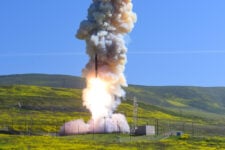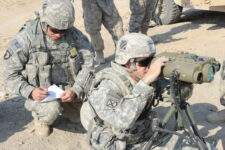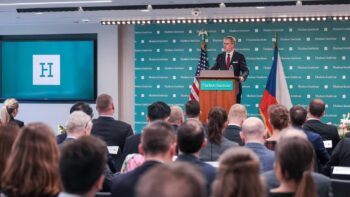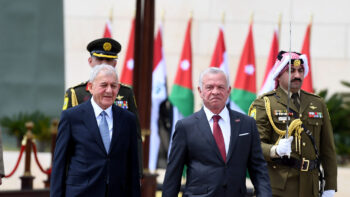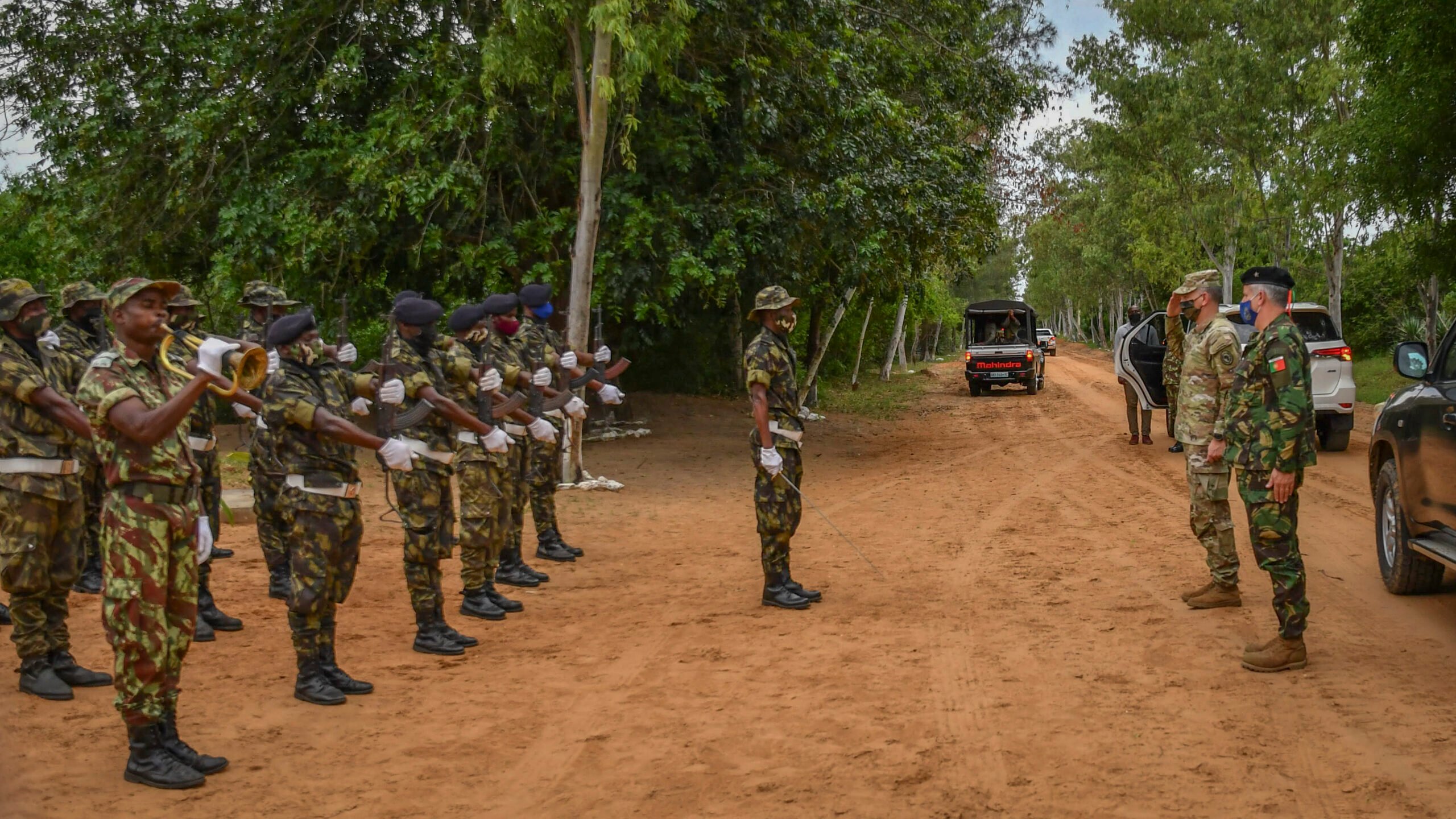
General Stephen Townsend, commander, U.S. Africa Command, reviews a Mozambican Armed Defense Forces formation in 2021. (Patrick Loch/US Army)
WASHINGTON — The Biden administration’s new policy for sub-Saharan Africa accuses China of seeing the region as an “arena” in which to wage a battle against the US-led “rules-based international order” and Russia of causing instability and then cashing in on the chaos.
But while the strategy, published today [PDF], acknowledges the US has to respond to “growing foreign activity and influence” in the region, the document focuses less on its geopolitical rivals and more on how Washington can do a better job engaging African governments to work closely on everything from the climate crisis to food insecurity to terrorism.
“So the China-Russia thing is very subsidiary from our perspective,” a senior administration official put it bluntly to reporters Sunday. “This was really about how we can do better to work more effectively with Africans to achieve results in areas that challenge us all.”
Another senior official said the strategy “certainly recognizes that many countries are interested in Africa, see their national security interests in increasing engagement with the continent.
“But what we’re focused on is the fundamentals, what we’re hearing from Africans,” the official said, according to a White House transcript. “And transparency, accountability, openness — these are the things that Africans care about. And it’s a place particularly where we’re best suited to succeed on.”
The strategy lays out four “objectives to advance US priorities in concert with regional partners […] during the next five years”: Foster openness and open societies; Deliver democratic and security dividends; advance pandemic recovery and economic opportunity; and support conservation, climate adaptation, and just energy transition.
The first and second objective would presumably involve pushing back on Chinese and Russian activities, based on the portion that addresses those countries directly. The strategy accuses China of working to “advance its own narrow commercial and geopolitical interests, undermine transparency and openness, and weaken US relations with African peoples and governments.”
The official acknowledged that when it came to China, which has invested heavily in African infrastructure in the past, different African nations have “different views.”
“They vary from interest in their economic programs to concerns about their labor practices. And so, the best way for us to engage with Africans on China or on Russia is to make sure it’s a free conversation,” the official said. “And I really think it’s impressive to see the way that African journalists and legislatures and environmentalists are talking about what China is doing good but also some of the negative things. And creating that space is the best way that we advance our interests and our African interests.”
When it comes to Russia, the strategy says Moscow “views the region as a permissive environment for parastatals and private military companies, often fomenting instability for strategic and financial benefit. Russia uses its security and economic ties, as well as disinformation, to undercut Africans’ principled opposition to Russia’s further invasion of Ukraine and related human rights abuses.”
The mention of private military companies is almost certainly a reference to the Wagner Group, what US officials say is a loose organization of private soldiers accused of being a particularly destabilizing force in African nations like Mali in the Sahel and the Central African Republic. (The Russian government has formally denied its ties to Wagner, a claim roundly dismissed by Western governments.)
RELATED: Head of US special ops in Africa likens Wagner Group to ‘terrorist organization’
“Obviously we’re incredibly concerned about the role of Russian mercenaries in the Central African Republic, in Mali,” one of the senior administration officials said. “They’re committing human rights abuses. They’re not making the security better. They are focused mainly on extractive industries, whether it’s diamond or gold.”
But the other official said that other African nations have taken notice.
“I mean, I think the real story about the Kremlin-backed Wagner Group is that Africans are not interested in the kind of services they offer, broadly speaking, because they’ve seen the exploitation of resources, taking them out of Africa abroad and not benefiting the community here. And they’ve seen the reckless disregard for civilian life,” the official said, according to the transcript. “So, I think the important story is that Africans don’t want Wagner here and [inaudible] and the steps they’re taking to keep them out.”
To address the threats, the strategy details diplomatic efforts to increase transparency, support local governance and battle corruption. For the Pentagon, it suggests it will take up an information campaign: “… the Department of Defense will engage with African partners to expose and highlight the risks of negative PRC [People’s Republic of China] and Russian activities in Africa.”
More broadly, the strategy aims to “leverage civil-defense institutions and expand defense cooperation with strategic partners that share our values and our will to foster global peace and stability.”
The US defense industry also gets a brief mention as a brief mention as the White House plans to “engage the U.S. defense private sector via Prosper Africa to support sustainable technology and energy solutions for African militaries.”
‘Poisoned’ data could wreck AIs in wartime, warns Army software acquisition chief
“Any commercial LLM that is out there, that is learning from the internet, is poisoned today,” Jennifer Swanson said, “but our main concern [is] those algorithms that are going to be informing battlefield decisions.”











